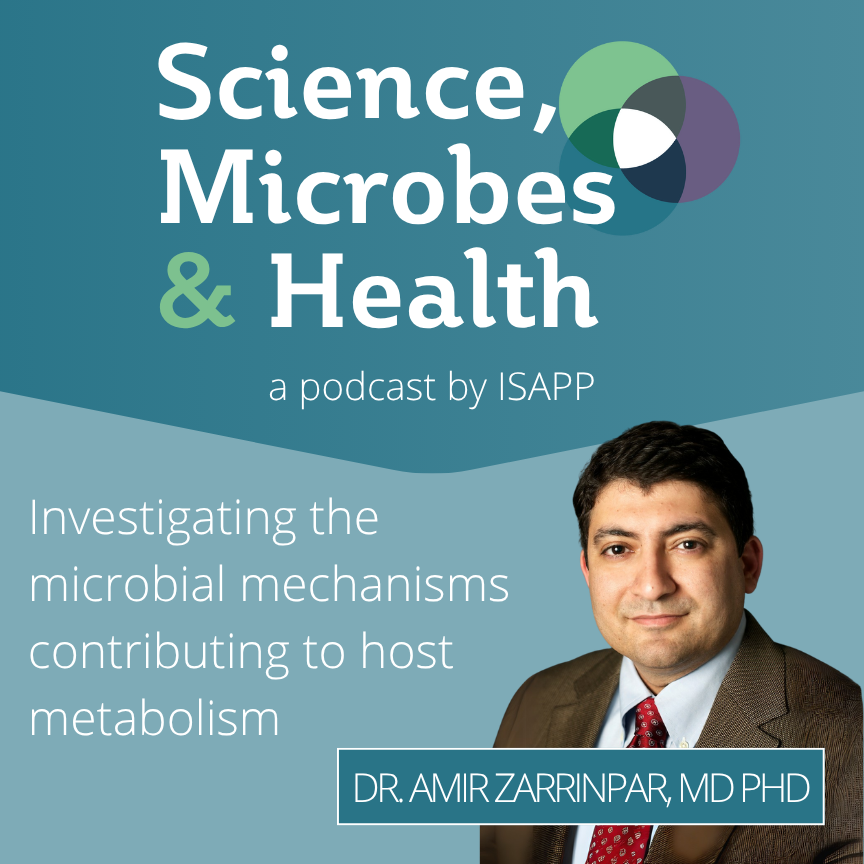Investigating the microbial mechanisms contributing to host metabolism, with Dr. Amir Zarrinpar, MD PhD
Podcast: Play in new window | Download
Subscribe: Apple Podcasts | Spotify | RSS
This episode features Dr. Amir Zarrinpar, MD PhD, from UC San Diego (USA) speaking about his work on circadian biology and host metabolism, and what’s currently known about microbial mechanisms. Dr. Zarrinpar explains that in mouse models, restricting feeding to the nocturnal (awake) period is important for their metabolic and overall health. When mice eat during the nocturnal period, the microbiome is very dynamic and essential for maintaining normal circadian rhythm. On a high-fat diet, they change their feeding timing and sleeping behavior simultaneously, and the microbiome fluctuations are disrupted. However, when mice experience time-restricted feeding they are protected from the deleterious consequences of the high-fat diet. The hypothesis is that the time-restricted feeding restores the normal circadian fluctuations of the microbiome. Even though the composition doesn’t change much, the microbes may be changing what they’re doing. Dr. Zarrinpar has used metatranscriptomics to find out what the microbes are actually doing (what genes they’re using), and saw patterns that correlated with time-restricted feeding, indicating that the microbiome may play a key role in the beneficial metabolic effects of time-restricted feeding. Overall, the host may be trying to interpret what’s happening in the environment through microbial signals. The key question to answer going forward is why certain microbe-derived signals prompt the host to alter its metabolic response.
Episode abbreviations and links:
- Paper on using metatranscriptomics to capture microbiome shifts related to circadian rhythms: Metatranscriptomics uncovers diurnal functional shifts in bacterial transgenes with profound metabolic effects
- Zarrinpar Lab website
About Dr. Amir Zarrinpar, MD PhD:
Dr. Amir Zarrinpar is an Associate Professor in the Division of Gastroenterology at UC San Diego. Dr. Zarrinpar is a renowned expert in the field of microbiome research and its applications to human health and disease. His work focuses on understanding the complex relationships between the gut microbiome, circadian rhythms, and host metabolism, with the goal of developing novel therapeutic strategies for diseases such as obesity, diabetes, and liver disease. Dr. Zarrinpar has published numerous papers in top-tier journals and has received several awards for his research, including the Litwin IBD Pioneer Award and the American Gastroenterological Association’s Microbiome Junior Investigator Research Award. He is also a dedicated mentor and educator, having supervised numerous students, fellows, and junior faculty members in his laboratory.
Sign up for our monthly newsletter
Follow us on LinkedIn, Bluesky, X, Facebook,







